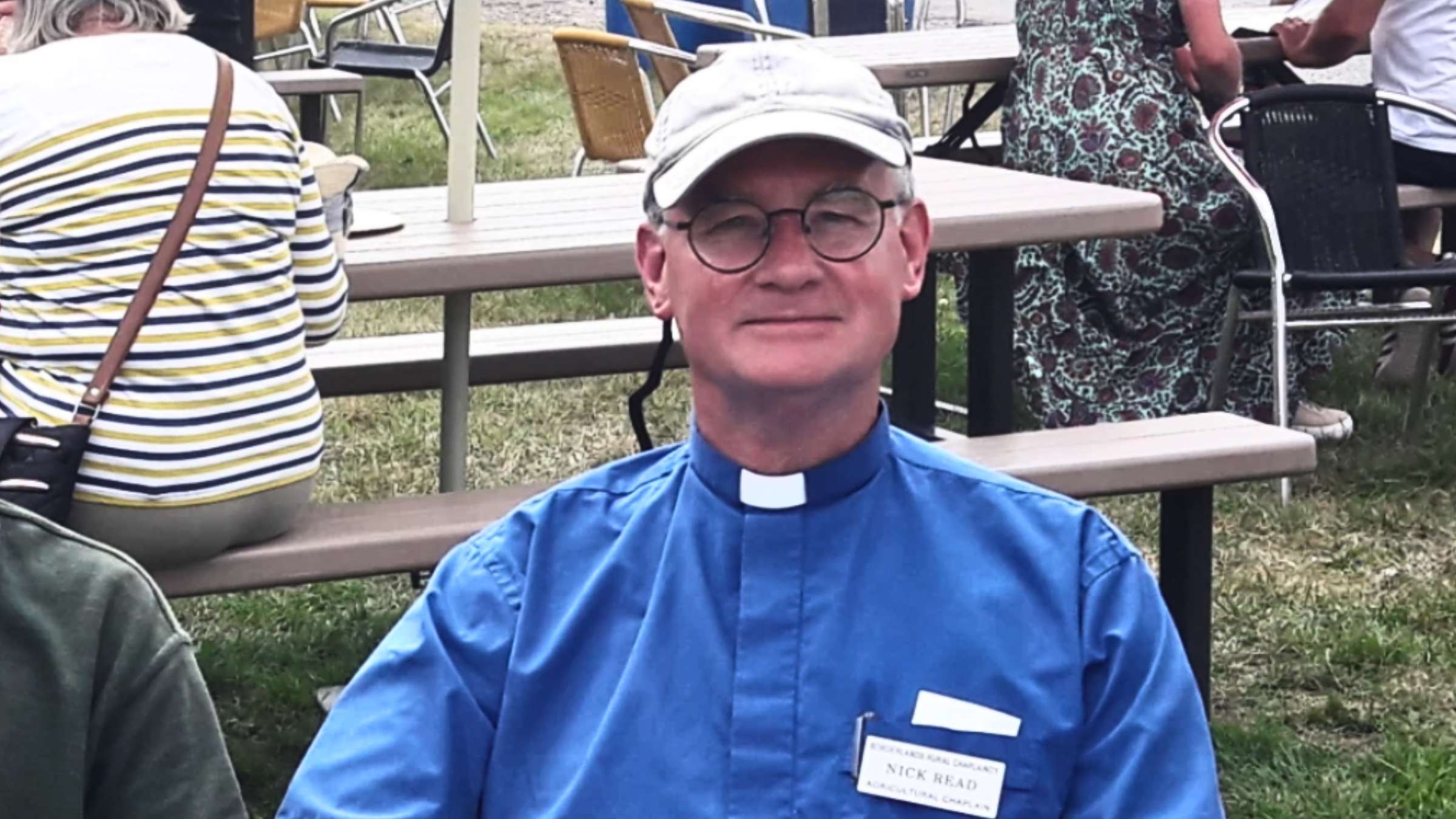How agricultural shows engage our farming community
The Rev’d Preb Nick Read is Hereford Diocese Associate Agricultural Chaplain and part of Borderlands Rural Chaplaincy, supporting agricultural communities in Herefordshire, Shropshire, and Eastern Powys. Here he reflects on the role of the agricultural show through the ages, in bringing the farming community together.
It is the season of agricultural shows. I’ve attended the Royal Three Counties Show, with various hats on, for over thirty years. This year’s was a success; good weather, large crowds and a steady flow of people through the Church tent, where we offer hospitality, children’s activities (including an open mic for school choirs), a bookstall and opportunities for prayer and pastoral care.
Whilst farmers across the world have undoubtedly always compared their breeding stock with that of their neighbours, or competed to raise the best crops and highest yields, the claim for the first recognized “agricultural show” in the UK is that held at Salford, Lancashire, in 1768, and the first recognized ploughing match was organised by the Odiham Agricultural Society in Hampshire in 1783. Over the following centuries such competitions went global as agricultural societies, breed societies and others have presented the work of farmers in these public contexts. I have had the honour of blessing the ploughs at a World Ploughing Championship hosted within the UK.
These events were conceived as a space in which those engaged in agriculture could compare the products of their work and share expertise and ideas. They could be highly specialised; in the early 1800s the Duke of Bedford hosted a sheep shearing competition on his Woburn Estate in Bedfordshire – though today you are more likely to see a giraffe or an Eastern Mountain bongo calf (it really exists!) as it is the home of Woburn Safari Park!
In 1839 prominent members of the farming community met in Oxford, and this gathering was the first of what became the “national” agricultural show. In 1840 they were granted a charter to form the Royal Agricultural Society of England (RASE). It also marked a transition in which those from a predominantly urban background might also be introduced to the world of agriculture.
However, if shows provide continuity with the past, they also have to contend with the future. It is noticeable how the show has changed over the years, with no dairy cows following the BSE crisis and no poultry in recent years because of Avian Flu. Historically, all of the major high street banks had a presence at the show, this year I couldn’t see any. And the other major change is that the balance in attendees between those engaged in agriculture and the “general” public is radically different.
Is it fanciful to compare the Three Counties Agricultural Show with the church? We provide continuity with the past, but we face a radically different future. We have a rich heritage on which to draw, marking the seasons of people’s lives and celebrating community. Like farming, we’re often taken for granted, part of the fabric, but we’re also contemporary, dealing with the complexities of life and faith. Why not come and explore?
- ENDS –
NOTE:
Borderlands Rural Chaplaincy has been tending to the needs of farmers and their families across Herefordshire, Shropshire and Eastern Powys for the last fifteen years. The chaplaincy represents the hands, feet and heart of the church to the often overlooked and undervalued farming community, offering a confidential, pastoral, listening ear whilst working alongside local regional and national farm help charities and secular social services. The Chaplaincy is funded by financial contributions from the Methodist and Anglican Churches and from interested support groups. As the work develops there is always a need for more part time people to assist in its area of operation which is Hereford, Shropshire, and the border lands of Wales.

